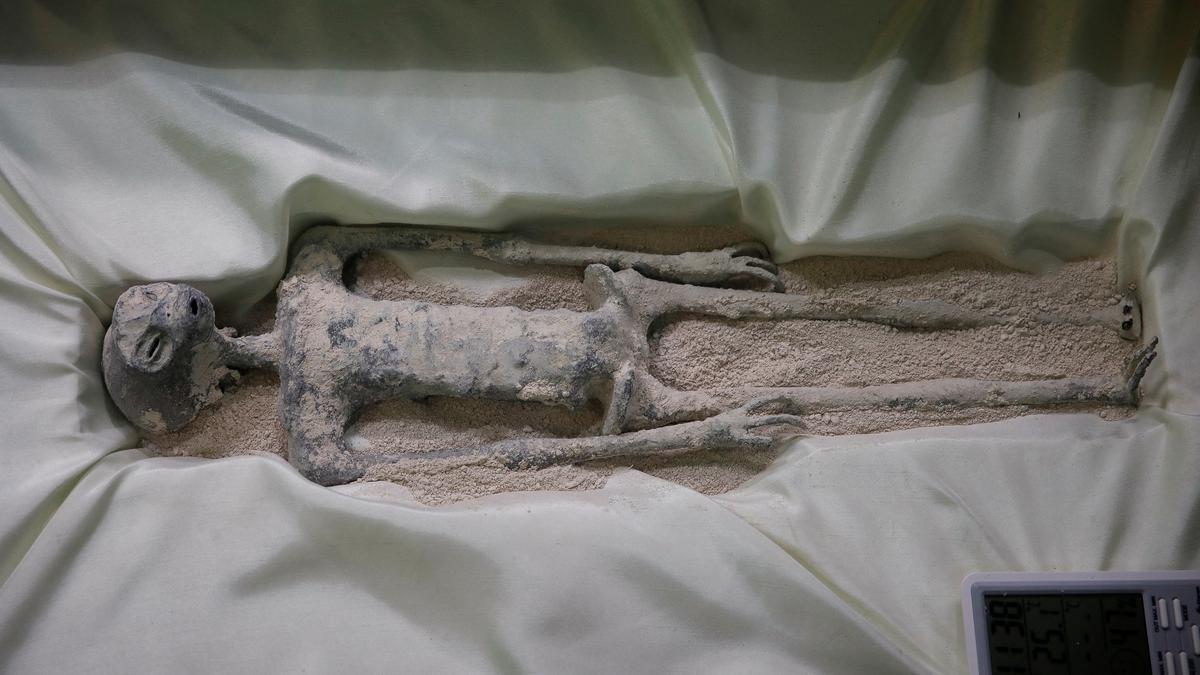NASA shifts UFO debate from sensationalism to science | Data

Unidentified flying objects, or UFOs in common parlance, were in the news again a few days ago for two contrasting reasons.
Last week, lawmakers in the Mexican Congress heard testimony from individuals suggesting the possibility of the existence of extraterrestrials. These individuals hailed from Mexico, the U.S., Japan, and Brazil. Journalist José Jaime Maussan presented two boxes that encased what he claimed were mummies found in Peru, of beings that he and others considered “non-human beings that are not part of our terrestrial evolution.” Similar findings in the past and in the area turned out to be the remains of mummified children. Scientists have called Mr. Maussan’s claim fraudulent and said that the mummies may have been looted from grave sites.
Two days later, in an unrelated event, a NASA panel recommended in a report that the U.S. space agency increase its efforts to gather information on unidentified objects in the sky, labelled ‘Unidentified Anomalous Phenomena,’ or UAP, by the government, and play a larger role in helping the Pentagon spot them. More importantly, the report, the result of a year-long study, also found no evidence that past UAP observations concerned objects of extraterrestrial origin. “We want to shift the conversation about UAPs from sensationalism to science,” NASA Administrator Bill Nelson said last week.
Regarding the reliability of UFO/UAP sightings, the report said: “UAP data are rarely, if ever, collected in a concerted effort to understand the phenomenon; they are usually coincidental observations.” Curiously, such observations, collated by a self-reporting database called ‘The National UFO Reporting Center Online Database’ (NUFORC), have been confined mostly to the U.S.
Chart 1 | The chart shows the number of self-reported observations recorded in the NUFORC database.
Charts appear incomplete? Click to remove AMP mode
Of the self-reported observations, close to 90% are from the U.S. Most of the observations misconstrued natural phenomena or human-made objects that the observer was unaware of. The database also includes 479 self-reported observations of UFOs from India.
The session in the Mexican Congress took place two months after a similar one before the U.S. Congress, in which a former Air Force intelligence officer claimed that his country has probably been aware of “non-human” activity since the 1930s.
Another famous UAP reported in recent times is the so-called ‘GoFast’ video, recorded by navy aviators onboard the USS Theodore Roosevelt . It shows an object flying just above the ocean at great speed. The recent NASA study debunked this claim by using trigonometry to determine that the object was travelling at a normal speed and was probably drifting with the wind.
It is precisely to debunk such claims using science that the U.S. government has done a U-turn on public information on UAPs after decades of stonewalling and deflecting. The Pentagon has been actively investigating reported sightings in recent years by military aviators. NASA also named a new director of research into UAPs last week, Mark McInerney.
Chart 2 | The chart shows reported UAPs across altitudes.
In fact, the All-domain Anomaly Resolution Office (AARO), under the U.S. Department of Defence, has been investigating and debunking UFO sightings since 2022. AARO has classified UFO/UAP sightings between 1996-2023 based on altitude (Chart 2) and morphology (Chart 3) to streamline such observations. Of the more than 800 unclassified sightings collected by AARO thus far, only “a small handful cannot be immediately identified as known human-made or natural phenomena,” according to the NASA study.
Chart 3 | The chart shows the morphology of reported UAPs.
Source: National UFO Reporting Center, All-domain Anomaly Resolution Office
Also read:‘Alien bodies’ presented in Mexican Congress panned as ‘stunt’
Listen to our podcast |A discussion on Madras HC judgment: Wife can claim a share in husband’s property | Data Point podcast



COMMents
SHARE
Email